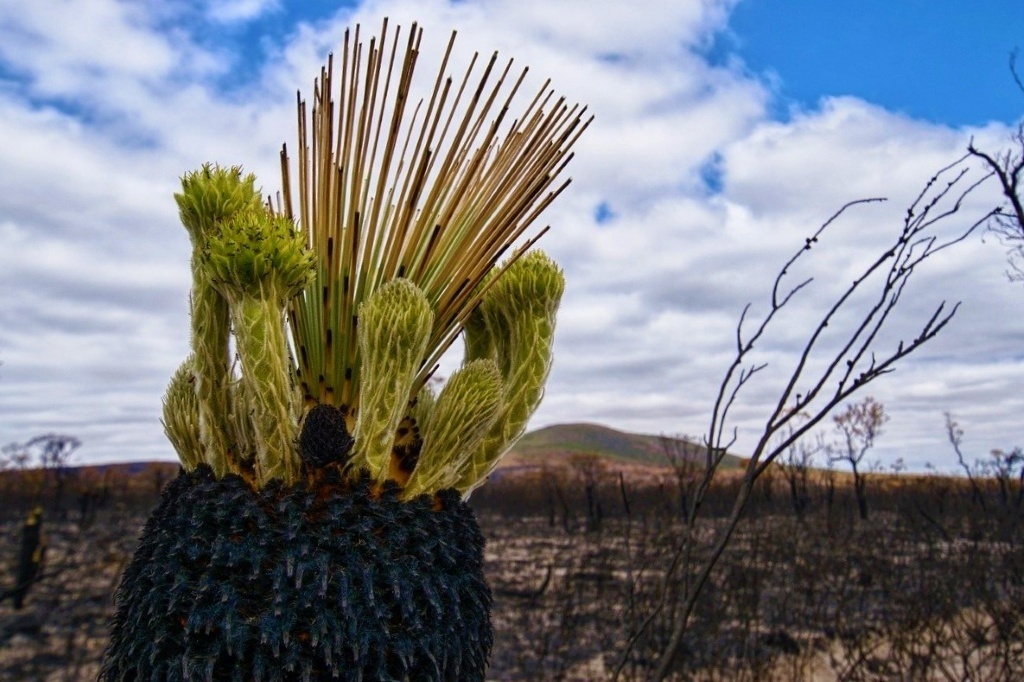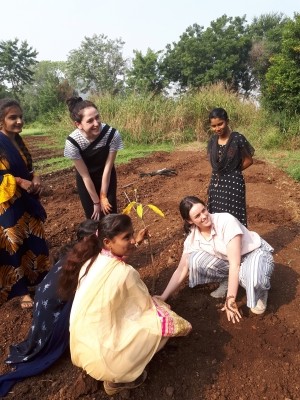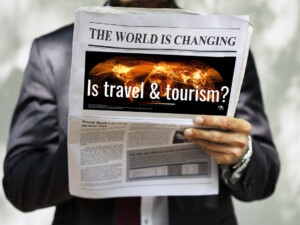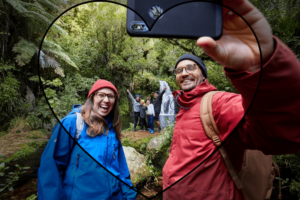Is ‘regenerative tourism’ just a rebranding of ‘sustainable tourism’?

For those still confused about the difference between sustainable tourism and regenerative tourism, PhD candidate Loretta Bellato offers answers to questions that she is frequently asked. It’s a “Good Tourism” Insight.
[Thanks to Joseph M Cheer for inviting Ms Bellato to write a “GT” Insight.]
Emerging at the same time as sustainability, regeneration has expanded across numerous development sectors including residential, commercial, and agriculture. While regenerative tourism practice has been developing since the first decade of this century, it is still relatively unknown and poorly understood.
In this brief article, I will answer some common questions and respond to some common criticisms of regenerative tourism.
Also see David Gillbanks’ “GT” Events report
“Regenerative ecotourism: Asking questions is the best place to start”
Why do we need regenerative tourism?
Proponents of regenerative tourism want to address growing concerns about tourism’s contributions, and vulnerabilities, to the catastrophic destruction of societies and the planet. Dominant sustainable development approaches originate from a mechanistic worldview; the industrial model and the ‘continual growth’ agenda. They support extractive economies that no longer serve our interests.
The implication here is that sustainable tourism has failed.
In response, there are calls for the adoption of alternative worldviews to address tourism and sustainability, because ‘you cannot solve old problems with old thinking’. Such alternatives and their applications are emerging from the margins of tourism practice. Derived from an ecological worldview, regenerative tourism is being developed by a growing movement of tourism practitioners.
What is regenerative tourism?
Let me start off by saying that regenerative tourism is not a tourism niche, like ‘adventure tourism’. Rather, it is a holistic way of thinking; a transformational approach with deep roots within regenerative development.
Regenerative tourism combines a range of processes co-created by local communities who want their places and their visitors to flourish. There are no 10-point checklists that tourism stakeholders can follow. Instead, stakeholders must come together to discover the unique essence of their place to find ways to build reciprocal, beneficial relationships.
Communities that adopt a regenerative tourism approach embark on a journey to align themselves with living systems as part of nature. Tourism activity in urban areas can also be regenerative as cities are also viewed as living systems.
Also see Daniel Turner’s “GT” Insight
“Is sustainable tourism enough to regenerate nature?”
According to Anna Pollock in a keynote address: “Regenerative Tourism is based on a fresh understanding that the visitor economy in general and the destination in particular is not an industrial production line but a living, networked system embedded in a natural system called Nature and subject to Nature’s operating rules and principles.”
The Global Regenerative Tourism Initiative in Central and South America emphasises the relationships between self, other humans, and nature. It also seeks to improve social and environmental systems capacity. The Initiative emphasises the well-being of all stakeholders who co-evolve towards greater systems capacity.
Is regenerative tourism a rebrand of sustainable tourism?
As part of the broader regeneration movement, regenerative tourism aligns all towards serving life and sustaining the planet so that all beings can flourish. Regenerative tourism’s purpose, then, is to act in service of the wider systems in which it operates.

Unfortunately, many sustainable tourism initiatives tend to serve tourism rather than tourism’s host communities and places. Tourism is regenerative when it regenerates more than just itself.
Regenerative tourism’s purpose, then, is to contribute towards regenerating the places and communities in which it operates, and to build the capacity of support systems to evolve and produce net positive impact. While sustainability measures are a key component of regeneration, this approach goes further than sustainable tourism.
Another key difference between sustainable tourism and regenerative tourism is that regenerative tourism draws from both Western and Indigenous knowledge systems. Regenerative tourism recognises that Indigenous peoples and their ways of knowing, being, and doing should play a significant role in shaping tourism values, principles, knowledges, and practices.
Understanding tourism systems as interrelated sub-systems of a greater whole — and the interconnectedness among humans and the rest of nature — reflects Indigenous influences. In contrast, sustainable tourism continues to mostly privilege colonising systems, structures, and knowledges resulting in compromised solutions that fit within and serve the dominant order.
Also see Susanne Becken and David Gillbanks’ “GT” Insight
“Regenerative tourism vs sustainable tourism: What’s the difference?”
A third key distinction relates to the significance of place in tourism. In sustainable tourism, the focus tends to be on applying generic solutions to sustainability problems everywhere. In contrast, regenerative tourism develops tailored solutions based on the unique potential of each and every place.
It sounds very nice, but is it practical?
Bodies such as the World Travel & Tourism Council (WTTC) and the United Nations World Tourism Organisation (UNWTO) are recognising that tourism requires a rethink, not only for the sake of the planet but also for the ‘sustainability’ of tourism itself.
Tourism thrives when it collaborates with places and communities. Its long-term survival depends upon creating reciprocal relationships with stakeholders ‘on the ground’; those who live and operate within systems that host tourism activities.
Regenerative tourism can transform how we fundamentally think about and enact tourism. And, given the backlash against continual-growth-focused tourism, the adoption of an approach that elevates the unique essence of each community and place to create net positive effects may indeed be the most pragmatic and practical way forward.
How can I find out more about regenerative tourism?
Since about 2018, many more tourism stakeholders have started to use the term ‘regenerative tourism’ with varying understandings of the concept. Those who have been pioneering the work have been at it since 2010 or even earlier.
There are many regenerative tourism initiatives in their early stages. They are mainly in Europe, Ireland, New Zealand, and Central and South America. Much of their work involves encouraging communities to think about tourism as a means to achieving broader well-being rather than growing visitor numbers and GDP.
I have no commercial interest in any of the organisations I mention here, however they are involved in my research. They may be useful resources for finding out more.
Regenesis Group — pioneers of the broader regenerative development concept — were involved in designing the very first regenerative resort, Playa Viva in Mexico, and have worked on numerous tourism-related developments since.
Two other organisations leading this work are Conscious Travel and Camina Sostenible. There are also growing movements of practitioners, including Regenerative Travel — an alliance of hotel and resorts — and the Global Regenerative Tourism Initiative.
In places and communities in which regenerative tourism is having an influence, real and positive changes are occurring. Hosts are measuring tourism impacts and working towards alternative targets for the desired futures that they have defined according to their values and priorities. And they are developing and implementing regenerative tourism solutions that are unique to the potential of their places.
What do you think? Share a short anecdote or comment below. Or write a deeper “GT” Insight. The “Good Tourism” Blog welcomes diversity of opinion and perspective about travel & tourism because travel & tourism is everyone’s business.
Featured image (top of post): Kingia australis, regenerating naturally. Image by TerriAnneAllen (CC0) via Pixabay.
About the author

Loretta Bellato is a PhD candidate at the Centre for Urban Transitions, Swinburne University of Technology, Australia. She is undertaking research on the contributions of tourism towards regenerating places and communities through regenerative tourism. She has extensive practitioner experience in the community health and tourism sectors and is a graduate of the Regenesis Regenerative Practitioner program. ResearchGate profile.





